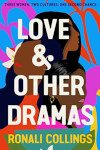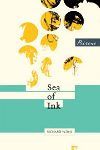January 2021 Reading Round Up
Posted 5th February 2021
Category: Round-Ups Genres: N/A
1 Comment
January wasn’t bad; aside from the books below I’ve two on the go and turned my way through a further small chunk of pages of A Shepherd’s Life.
All books are works of fiction.
The Books



Elizabeth Baines: Used To Be – A short story collection with the theme of different roads in life. Very, very good.
Katy Yocom: Three Ways To Disappear – Quinn and Sarah lost their sibling, Sarah’s twin, in childhood; now adults, Quinn tries to get back into her art whilst being a mother to her own set of twins, one with a chronic illness, and Sarah leaves her job as a reporter in dangerous locations to work in tiger conservation in India. Much better than my brief summary can do, this is a super book that explores trauma, conservation, and in the conservation all of the social affects conservation has on humans.
Susmita Bhattacharya: Table Manners – A collection of stories about human relationships and connections, linked by the theme of food, whether the food is an item, an idea, or a construct. Awesome.
It may not have produced the numbers, but the reading was wonderful. Everything I read was fab, and the books I have started recently – Catherine Cho’s Inferno and Lillian Li’s Number One Chinese Restaurant, the latter one of those books I took off my list when I didn’t make headway last year (I’m now further along) are great. Cho’s in particular is just incredible; Inferno is her memoir about her time with Post-Partum Psychosis; it’s a brave book, written – and structured – spectacularly well and I can’t but believe it only narrowly missed out on winning the Young Writer of the Year Award in December (won by Jay Bernard for their poetry collection, Surge).
That’s what I’m looking forward to in February, the Cho and the Li. Absolutely, completely.
2020 Year Of Reading Round Up
Posted 18th January 2021
Category: Round-Ups Genres: N/A
2 Comments
In 2020 I read 57 books, not my lowest number but definitely less than I’d considered it might be at the beginning of the year! I had a number of books unfinished by the year’s end, most of which I’d begun in the early spring, and, due to not having got very far with them, I decided to leave them off my reading lists completely until such time as I can contemplate starting them again, properly. The only one I kept was James Rebanks’ A Shepherd’s Life; I had read a good chunk of it and it was different to the other books in that whereas I read those outside and in the day in general, Rebanks’ book was saved for bedtime reading – time carved out without other books to distract me kept me going. All this to say that there are two books I carried over into 2021: the ever-present Vanity Fair (perhaps I need a readalong) and A Shepherd’s Life. The latter is in fact my father’s book – I bought it for him upon request when it was first published, and later he lent it to me to read – and so I was originally planning to finish it quickly. Having not seen Dad since last, last, Christmas and not knowing exactly when the next time would be, I admit to taking my time with the book. Got to find those small upshots where they are!
For the first time, I’m not going to do personal favourites. As you’ll see from the ratings, there was little not to like.
Best Of The Best








Elizabeth Baines: Astral Travel (2020) – Following her father’s death, Josephine looks to make sense of his abusive behaviour through writing about him, and there is a lot more to uncover than her family will allow into the book. Probably the best book about childhood abuse I’ve read – this is an incredibly difficult book to read but the study and further exploration is exquisitely done.
Intisar Khanani: Thorn (2012) – When Princess Alyrra is betrothed to Prince Kestrin, she’s not comfortable with the idea of travelling to his kingdom with Valka, who dislikes her, and the sudden appearance of a mage followed by a fae-like lady the night before has her more so; as Valka betrays her and the two womens’ bodies are switched Alyrra starts a different journey, one that will involve learning all manner of things about herself in order to turn back the changes, and all manner of things about her new kingdom that royalty are never privvy to. A superb fairytale retelling and adaptation, Khanani expanding on the ideas in the original Goose Girl to incredible effect.
Isla Morley: Come Sunday (2009) – The young daughter of Abbe, a woman who is struggling with her general situation, dies in an accident and Abbe has to wade through the repercussions of this whilst learning to live with her grief. An exceptional look at extreme grief and bad circumstances and the process towards acceptance and hope.
Joanna Hickson: First Of The Tudors (2016) – A fictionised story of Jasper Tudor, son of Catherine de Valois and her second husband Owen Tudor, as well as Jane, mother of his illegitimate children, taking us from Jasper’s early years to the initial first campaigns to bring Jasper’s nephew, the future Henry VII, to the throne. A fantastic story, immersive, detailed, and just simply a very good book in general.
Laura Pearson: I Wanted You To Know (2019) – A young mother is diagnosed with cancer and as she struggles through the changes to her world and future she writes letters to her daughter for the girl to read after she is gone, making preparations and healing relationships beforehand. An incredibly emotional read; difficult but important.
Peter Ho Davies: The Fortunes (2016) – Four stories connected by Chinese American history, racism, passing, and that rubbish idea that all Asians look the same: we follow 1800s Ling as he works for a Chinese American laundryman and white American railway construction company owner; Hollywood star Anna May Wong discusses her career progression which is marred by racism; a fictionised friend of Vincent Chin discusses the night of his death and what followed; and John travels to China with his wife to adopt a baby, already having lots to think about on the subject of being Asian American now and throughout history, and finding even more now as he goes through the last stages of the handover. An utterly fantastic book – the handling of the subjects, and the writing and language in general is superb.
Sofie Laguna: The Eye Of The Sheep (2014) – Jimmy sees things differently to other people though he doesn’t quite know it, but he does know about the tentacles in his mother’s chest that cause her problems, sees his dad struggle, and often can’t help himself from running around for ages; the family situation as it is is not sustainable and we see the changes through Jimmy’s eyes. A fantastic book about a child who defies a label, and his very normal, everyday family, living in the 70s and 80s.
Tracy Rees: Florence Grace (2016) – A young girl living in relative poverty in the Victorian period is employed for an evening as a servant for a party, and she meets a boy with the surname Grace – who isn’t going to be her husband. I don’t want to spoil the story so I’ll leave it there; this is as enjoyable as Amy Snow but pretty different and more Dickensian and Emily Brontë than Amy Snow’s Austen and Charlotte Brontë.
5

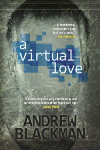

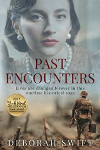



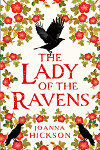


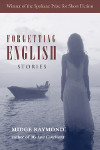
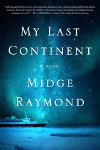


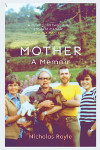





- Andrew Blackman: On The Holloway Road (2010)
- Andrew Blackman: A Virtual Love (2013)
- Camilla Bruce: You Let Me In (2020)
- Deborah Swift (as Davina Blake): Past Encounters (2014)
- E C Fremantle: The Poison Bed (2018)
- Intisar Khanani: Memories Of Ash (2016)
- Joanna Hickson: The Tudor Crown (2018)
- Joanna Hickson: The Lady Of The Ravens (2020)
- Isla Morley: The Last Blue (2020)
- Marianne Holmes: All Your Little Lies (2020)
- Midge Raymond: Forgetting English (2009)
- Midge Raymond: My Last Continent (2016)
- Nicola Cornick: The Forgotten Sister (2020)
- Nicholas Royle: An English Guide To Birdwatching (2017)
- Nicholas Royle: Mother: A Memoir (2020)
- Sofie Laguna: One Foot Wrong (2008)
- Sofie Laguna: The Choke (2017)
- Susmita Bhattacharya: Table Manners (2018)
- Tracy Rees: The Hourglass (2017)
- Weike Wang: Chemistry (2017)
4.5


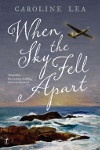





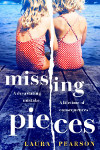




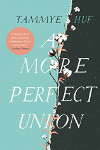
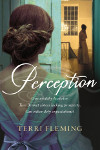
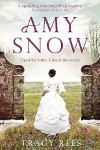
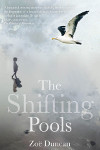
- Abubakar Adam Ibrahim: Season Of Crimson Blossoms (2016)
- Abubakar Adam Ibrahim: The Whispering Trees (2012)
- Caroline Lea: When The Sky Fell Apart (2016)
- Caroline Lea: The Glass Woman (2019)
- Deborah Swift: The Occupation (2019)
- Eric Beck Rubin: School Of Velocity (2016)
- Fran Cooper: These Dividing Walls (2017)
- Fran Cooper: The Two Houses (2018)
- Laura Pearson: Missing Pieces (2018)
- Marianne Holmes: A Little Bird Told Me (2018)
- Nicholas Royle: Quilt (2010)
- Roselle Lim: Vanessa Yu’s Magical Paris Tea Shop (2020)
- Shannon Stacey: Yours To Keep (2011)
- Tammye Huf: A More Perfect Union (2020)
- Terri Fleming: Perception (2017)
- Tracy Rees: Amy Snow (2015)
- Zo&emul; Duncan: The Shifting Pools (2017)
4









- Chibundu Onuzo: Welcome To Lagos (2017)
- Dan Richards: Outpost (2019)
- Intisar Khanani: Sunbolt (2013)
- Laura Pearson: Nobody’s Wife (2019)
- Orlando Ortega-Medina: The Savior Of 6th Street (2020)
- Peter Ho Davies: The Welsh Girl (2007)
- Roselle Lim: Natalie Tan’s Book Of Love And Fortune (2019)
- Tracy Chevalier (ed.): Reader, I Married Him (2016)
- Tracy Rees: The House At Silvermoor (2019)
3.5

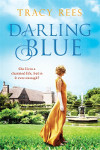
- Christina Courtney: Echoes Of The Runes (2020)
- Tracy Rees: Darling Blue (2018)
3

My reading list unsurprisingly reflects my podcast. There are no classics (Oliver Goldsmith was a casualty of the ‘not having got very far’) and nothing before 2007. There are also few review copies which I didn’t always get to in good time; I’m likely to lessen the number of those this new year. Podcast reading also means there are a number of re-reads here. I have changed a couple of ratings to reflect my updated thoughts on them; this accounts for discrepancies between ratings on this page and ratings and words in the linked reviews. I’ve excluded re-reads from my ‘best of the best’ list because it didn’t seem right to include them, especially as many were already on the ‘best of’ list for the year I first read them. The list also follows the one per author rule of previous years and due to that being strict enough, I’ve allowed for a higher number of best reads this time around.
Whilst compiling this post I made a note of various statistics which I later realised would be best included in a different post. I’ll be putting them together with my goals in the next few days. I’ve also a bumper film round up to get to.
What did you most enjoy reading last year?
December 2020 Reading Round Up + Podcast
Posted 15th January 2021
Category: Round-Ups Genres: N/A
1 Comment
I didn’t read too much in December, favouring festive films this year and spending more time with my rabbits. With no social visits for humans, the furry siblings had the best Christmas ever, which helped lighten the mood. The two have definitely noticed the difference as normal days have resumed.
All books are works of fiction.
The Books


Elizabeth Baines: Astral Travel – Following her father’s death, Josephine looks to make sense of his abusive behaviour through writing about him, and there is a lot more to uncover than her family will allow into the book. Probably the best book about childhood abuse I’ve read – this is an incredibly difficult book to read but the study and further exploration is exquisitely done.
Marianne Holmes: A Little Bird Told Me – Robin has returned to the place of most of her childhood (relevant) in order to find the truth behind the crying women her mother had round the house, the police visits, and the man in the cowboy hat who knew who she was and seemed protective but very off. Trying not to spoil it too much – this is a very good book that looks carefully at its subjects.
Baines’ book, which I am admittedly very behind on reviewing, is superb and worth the difficult moments. Holmes’ book is easier, but the subject no less difficult if very different. Both well worth the time.
I’m already on book two of 2021 which I consider a success. The unintentional breaks in blogging have done me the world of good too and I’m looking forward to sharing the posts I have ready.
This week’s podcast episode is with Marianne Holmes. Email and RSS subscribers: you may need to open this post in your browser to see the media player below.
Charlie and Marianne Holmes (A Little Bird Told Me; All Your Little Lies) discuss procedures when children go missing, societal changes in regards to domestic violence in the 1970s, and, on a lighter note, trying not to finish books you’re not enjoying.
To see all the details including links to other apps, I’ve made a blog page here.
November 2020 Reading Round Up + Podcast
Posted 15th December 2020
Category: Round-Ups Genres: N/A
1 Comment
November was fairly difficult this year but it’s getting a lot better. I didn’t read as much as usual but I did enjoy what I read, very much, and ended the month with a book started that I’ve since finished and enjoyed too. I’m now looking at trying to get through a backlog of books in terms of reviewing; I’m not the best at writing reviews for books I read a while back – even a week and I struggle! – but I’ll see how it goes.
All books are works of fiction.
The Books



Deborah Swift: Past Encounters – originally published under the name Davina Blake; when Peter comes home from war, Rhoda marries him, but she’s never been very happy and when she finds a note from a woman she becomes suspicious. A truly excellent book.
Deborah Swift: The Occupation – as the Germans approach Jersey, Celine’s German husband Fred goes off to fight and Celine herself misses the evacuation; instead of leaving for England she and her Jewish friend, Rachel, must stay on the island, whilst in France, Fred must assume the role of a Frenchman to infiltrate the resistance. An excellent book that is fearless in its motive to show what it must and has a very poignant ending.
Roselle Lim: Vanessa Yu’s Magical Paris Tea Shop – in order to try to hone the fortunetelling ability she has tried to neglect for fear and dislike of it, Vanessa agrees to stay with Aunt Evelyn in Paris for a couple of weeks; the one thing that can’t be changed, is a fortuneteller’s fate to never find a romantic match, and when Vanessa meets Marc she strives to enjoy the time for as long as it lasts. An incredibly enjoyable magically realistic novel that envelopes you in its generally happy world and brights a rainy day.
As said, I enjoyed all three books. Lim’s made a chilly rainy autumn afternoon much better, Swift’s second book caught me with its ending and her use of characterisation to explore aspects of history, and re-reading Past Encounters, this time with proper knowledge of the film (I hadn’t watched it the first time around) inevitably allowed for an entirely different reading which was interesting to consider as its own element.
I wrote a post on it so I’ll keep it short here: December, or, rather, Christmas, is about finishing books.
This week’s podcast episode is with Deborah Swift. Email and RSS subscribers: you may need to open this post in your browser to see the media player below.
Charlie and Deborah Swift (Past Encounters; The Occupation; the forthcoming The Lifeline, also many books sets in the 1600s such as The Lady’s Slipper; A Divided Inheritance) discuss Brief Encounter at Carnforth, the experiences of prisoners of war at the time and once back home, the real life story of a Jersey woman who hid her Jewish friend, and reactions to the death of the last woman in Britain to be given capital punishment.
To see all the details including links to other apps, I’ve made a blog page here.
October 2020 Reading Round Up + Podcasts
Posted 9th November 2020
Category: Round-Ups Genres: N/A
Comments Off on October 2020 Reading Round Up + Podcasts
October was quite busy as reading and podcasting goes. I was a little under the weather for a few weeks of it – torn muscles (there’s definitely a limit to how much housework can be done at once!) – so I was pleasantly surprised by how many books I finished, and more so when I noted the ones I had on the go that were almost finished. There were days to read outside which was lovely. And during my mandatory no-more-housework days I got through the BBC’s Ghosts which I highly recommend, and Love Life which seems to be BBC/American, a well structured romance/drama sort of series by and starring Anna Kendrick. I can also highly recommend the Cary Grant/Katherine Hepburn Bringing Up Baby if you’ve not seen it – it’s on iPlayer for several months and is pretty hilarious. Don’t read the film summary; not knowing what it’s about made it even better.
The Books



Eric Beck Rubin: School Of Velocity – Jan’s lined up to play in front of an audience, one of many occasions he’s done so, but this time the random music in his head is too much to bear; he takes us back to his childhood, his extremely popular and extroverted friend, and a relationship that he’s still to get his head around. This was a re-read: a super book about the lasting affects of a friendship and a whole lot about music in all its technicality.
Intisar Khanani: Sunbolt – On the run from the puppeteers behind the government. A diverse quasi-Asian/Eastern fantasy that’s brilliantly written and thrilling, but is short in terms of plot – this was a re-read: there is now a second book out (this was a re-read) and knowing that means that the issue of length is not a problem. The second book is also a lot longer. In essence, it’s best to go into the novella with a plan to continue the full story. The series as a whole is utterly fab.
Intisar Khanani: Memories Of Ash – Hitomi, now somewhat better and with more magical knowledge, looks to find her mentor who has had to leave to be questioned by the Arch Mages. This is the book mentioned above: it’s full of diversity, very well planned and written and just an absolute riot – a brilliant book full of hope and reader fun against a backdrop of evil.



Marianne Holmes: All Your Little Lies – Local teenager Chloe is missing, and Annie realises she’s probably the last one who saw Chloe that night… except that she was drunk and so didn’t see anything, had driven home drunk, and before that had entered her boss’s home without permission after he told her to leave the pub the team was socialising in; difficult to explain. An incredibly well-planned novel exploring PTSD and the effects of trauma and alienation from society.
Orlando Ortega-Medina: The Savior Of 6th Street – Virgilio’s artwork is bought by a wealthy woman; Beatrice wants to make him a star but this means leaving behind a lot and being among people very different to those he values, people with connections to the underground. Hopefully that brief premise is enough – this is a very good tale about art and an effective clash of a couple of different worlds that uses as its literary base the religion of Santería, weaving religious concepts into its chapters.
Tammye Huf: A More Perfect Union – The potato famine in Ireland has left Henry’s family destitute; he travels to America in the hope of a better life and whilst looking for work meets Sarah, a house slave walking back to her plantation from an errand; the two become close and the ultimate goal is to escape, which will prove more difficult than Henry could ever expect. A fantastic story, based on the author’s great-great-grandparents, that in its use of romance amongst an appalling situation manages to highlight all the more the horrors of the slavery era whilst maintaining that feeling of hope for those who escaped.
This was a very strong set of books, all very different and so difficult to compare in any way. I loved the Holmes for the author’s careful handling of her character’s situation; I loved the Huf for that excellent balancing of romance and the history; the Ortega-Medina was compelling for its use of Santería, the way it was used as a crucial aspect yet carefully placed as to sometimes appear abstract; Khanani’s Chronicles were a lot of fun (despite the bad guys) and refreshing; and re-reading the Beck Rubin was a delight.
Looking at November, I’m happy to say I’ve a couple of Deborah Swift books to read – the subtextual answer there is ‘yes’ and I’m looking forward to it! Earlier this month I finished Roselle Lim’s Vanessa Yu’s Magical Paris Tea Shop which I hope to review soon – it’s going to be quite a different review for good reason, and the basics are ‘loved it’. And I’ve got a couple of Young Writer of the Year shortlisters waiting for me. I’m also starting to look at books I started earlier in the year and didn’t manage to finish – Christmas is going to be very quiet this year and unless my nephew commandeers all my time for gaming over the Internet (which I wouldn’t mind), there’s going to a lot of reading involved.
Has the pandemic changed your reading, and if so, in what way?
Owing to my lesser ability to use a computer recently, I’ve two podcast episodes to include here. Email and RSS subscribers: you may need to open this post in your browser to see the media players below.
Episode 25: Intisar Khanani
Charlie and Intisar Khanani (Thorn; Sunbolt; Memories Of Ash; the forthcoming The Theft Of Sunlight) discuss working to better the health of people in Cincinnati, rewriting and exploring the Goose Girl fairy tale to stunning effect, bonkers jail-breaking heroines, and men who take a far more subtle approach than riding in on horses to save the day.
To see all the details including links to other apps, go to the dedicated blog page.
Episode 26: Eric Beck Rubin
Charlie and Eric Beck Rubin (School Of Velocity) discuss the representation of the Holocaust in literature, using classical music as a literary device, having a main character whose person limits the opportunity for dialogue through his obsession with another, and the reader being a writer.
Please note that the first reading contains sexual content.
To see all the details including links to other apps, go to the dedicated blog page.












